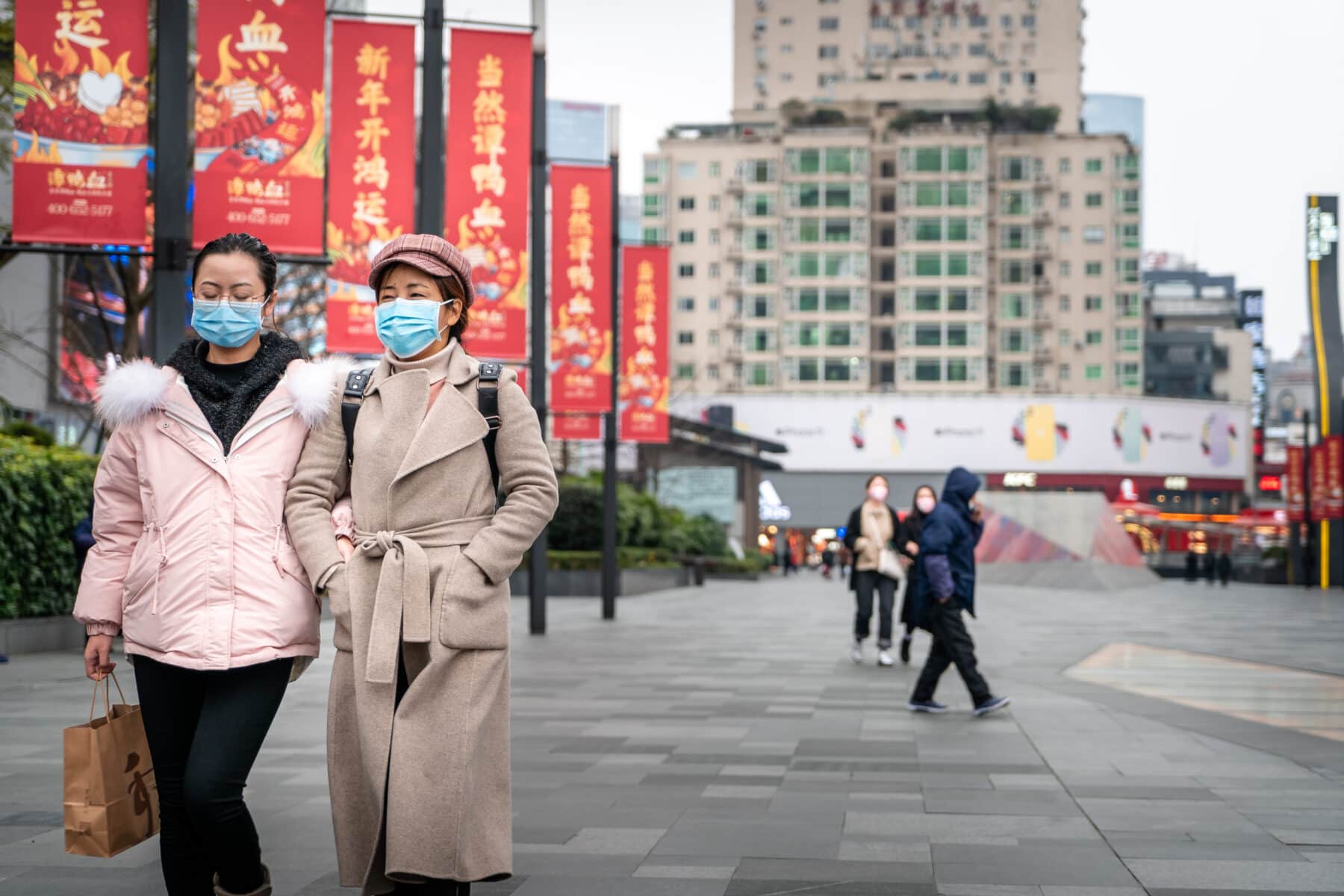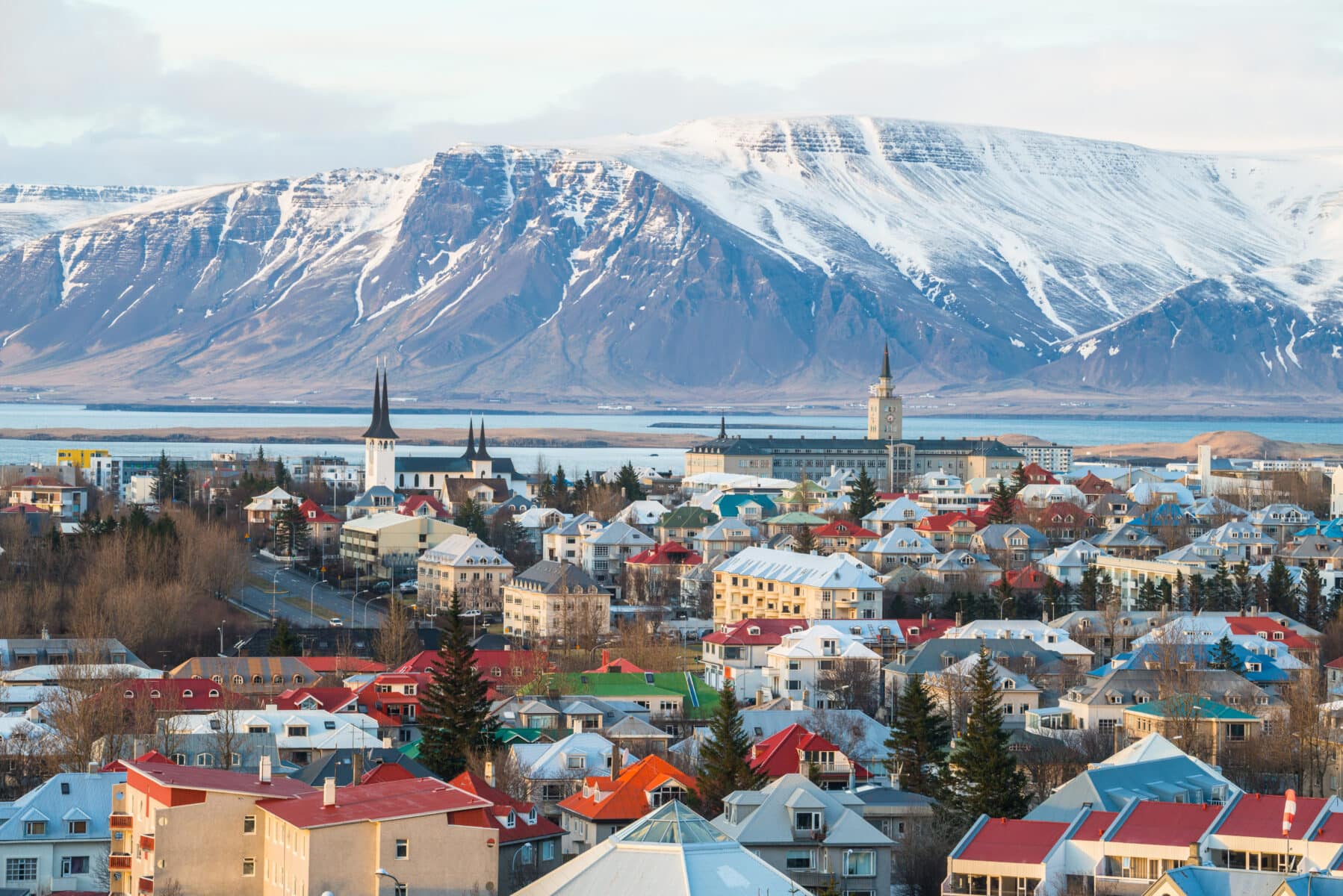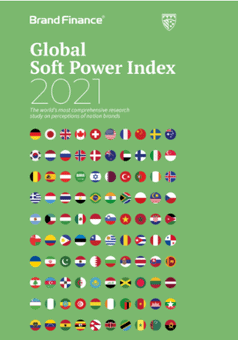This article was originally published in the Global Soft Power Index 2021.
Strong & stable Germany tops Index
A beacon of stability across the continent and the globe, in a year when this has been needed more than ever, Germany has usurped the US to become the world’s leading soft power superpower, with a Global Soft Power Index Score of 62.2 out of 100 and a clear 1.6-point lead over second-ranked Japan (60.6). Germany performs consistently and well across the 11 metrics, placing in the top five across nine of these. An outlier is the People & Values pillar, where the nation ranks considerably lower in 15th spot.
Germany performs excellently in the International Relations, Governance, and Business & Trade pillars ranking in the top two for all three metrics, as well as celebrating improvements on all statements across these Soft Power Pillars. Angela Merkel has been commanding the nation and continent since 2005, and despite mixed opinions of her leadership on home soil, she is hailed globally by the general public as the world’s most respected leader. Her long tenure at the helm of the nation has provided a strong and stable presence against the backdrop of unpredictable and erratic counterparts, particularly in the face of turmoil, as the threat of an unravelling European single market increases following Britain’s departure from the EU. 2021 marks the year that Europe and Germany will have to negotiate the significant void as Merkel prepares to step down as Chancellor, both her home nation and fellow-Europeans alike will be hoping Germany’s recent history of reliable leadership will continue as the world works towards a post-COVID recovery.
Merkel’s response to the COVID-19 pandemic epitomises her renowned credibility, with the specialist audiences surveyed perceiving Germany as the nation that handled the pandemic the best, and the general public ranking the nation 5th, behind New Zealand, Switzerland, Japan, and Canada. A scientist by training, Merkel’s response was solely data-driven, and her methodical approach was viewed as a relative success on the global stage, proven by the nation recording consistently lower cases per 100,000 than its Western European counterparts.
The nation’s contribution to the vaccine race in the form of the BioNTech-Pfizer vaccine – the fastest vaccine to go from concept to reality – no doubt contributed to the nation’s strong growth across all metrics in the Education & Science pillar, where its ranks 3rd globally, sitting behind Japan and the US .
The demise of US Soft Power?
A year of widespread turmoil has been starkly reflected in America’s steep downfall in the Global Soft Power Index 2021, making it the fastest falling nation globally. Between a turbulent election campaign and a haphazard COVID-19 response, the nation has lost its position as the world’s Soft Power superpower, falling to 6th position with an overall Index score of 55.9 out of 100.
With former President Trump’s hesitance to acknowledge the scale and severity of the crisis derided at home and abroad, the US finds itself at the very bottom of the COVID-19 metric – to an abysmal 105th. The raging of the virus across the nation combined with the President’s rebuke of medical expertise and touting of reckless home-remedies is the most likely culprit for the waning of America’s long-held role model status internationally, at a time where sensible global leadership has arguably been most needed.

It is a testament to the broader scientific and academic community in the United States that, despite the President’s own response being widely criticised, 2020 also saw improved perceptions in the Education & Science pillar. Despite dropping to second place overall in the Education & Science pillar, the US still increased by 0.5-points year-on-year to score 7.0 out of 10. The rise of Dr. Anthony Fauci in the vacuum created by Trump’s anti-science rhetoric and the rapid development of the Pfizer vaccine are likely at the heart of this increase. This shows the resilience of United States’ reputation for expertise and leadership in science and technology regardless of who occupies the White House.
However, scientific innovation regarding COVID-19 was not enough to save perceptions from falling with respect to Influence, Reputation, and Governance – most notably regarding the US as safe and secure, and as a nation who respects human rights. The wave of Black Lives Matter protests and counter-protests which took over during the summer of 2020 may account for this, as the death of George Floyd at the hands of the police sparked global outrage, drawing media attention to the practices of US police officers, particularly the seemingly disproportionate use of force against African American citizens. In the face of these wide-ranging reputational challenges, the Biden administration will be tasked with regaining domestic trust and international credibility in many areas in a crowded policy to-do list.
Well-governed nations climb ranks in the top 20
Europe and Asia command most of this year’s best performing nations, taking a cumulative 75% of the top 20 spots in the Global Soft Power Index 2021. Japan is the top performing Asian nation and second overall (60.6 out of 100), jumping up two spots from last year while ranking consistently across the board on all key metrics, and leading by a significant 2.7 points over third-placed UK.
Japan continues to reap the rewards of its strong brands, solid consumer spend, and high levels of business investment, again ranking first in the Business & Trade pillar. Additionally, Japan has seen an improvement in its Education & Science score, now ranking first in this metric too.
Undoubtedly a world leader in innovation, Japan is arguably one of the first countries to understand the true power of technology and embrace its benefits, with each advancement being a solution to problems facing the nation. With significant progress in automation, use of robots, and integration of AI with daily living, Japan is likely to thrive better than many other advanced economies in years to come. This is a particularly notable success, given the slowing economy and demographic challenges being faced with its ageing population.
Countries with a high overall Index score, such as Canada (4th – 57.2) and Switzerland (5th – 56.3), also scored within the top five nations in three key metrics: Reputation, Governance, and their COVID-19 response, suggesting a correlation between being perceived positively in these metrics and ranking highly overall.
Canada, for example, is recognised for good governance (3rd) and for their COVID-19 response (5th). However, nations such as Norway and Denmark also benefit from this view – people arguably assume these nations handled the pandemic well (6th and 8th, respectively) because they are perceived as having good governance (5th and 8th, respectively).
On the flip side, ranking 47th in the overall Index, Vietnam (33.8) is a nation that managed COVID-19 extremely well, but this isn't reflected in the data. The combination of poor governance perceptions (68th) and a relatively low familiarity around the world results in a lack of credit for Vietnam's achievements. While initially criticised for its harsh response, Vietnam was spared a year of lockdowns, and besieged hospitals, and has one of the lowest COVID-19 infection and death rates in the world. Not only is the response to the pandemic impressive – given its shared border with China – but Vietnam also experienced one of the highest economic growth rates globally in 2020 – one of a handful of countries with positive growth in 2020 - all while neighbouring countries continue to wrestle with deepening recessions .
Powerhouses suffer amid poor pandemic responses

Following a year defined by national lockdowns, travel restrictions, and social distancing measures, perceptions of soft power have been significantly influenced by nations’ approaches towards the COVID-19 pandemic. Those who reacted promptly and effectively – such as New Zealand and Australia – implementing early lockdowns and tight border restrictions have performed well across the Soft Power Pillars this year, thereby climbing up the Index.
Conversely, 13 nations have observed an overall drop in their Global Soft Power Index scores as media scrutiny of their handling of the virus caused negative trends across the Influence, Culture & Heritage, and People & Values metrics. Among these is the United Kingdom, dropping 3.9 points to an overall Index score of 57.9 out of 100, however still defending its 3rd place position in the Global Soft Power Index. This follows extensive criticism towards Boris Johnson’s government for an unclear approach to curbing the spread of the virus and reluctance towards implementing a lockdown, resulting in extremely high death rates across the United Kingdom.

However, as perceptions of the nation abroad tend to outperform those domestically, the UK has improved by 0.6 points in the Governance metric. Following successive changes in leadership in the aftermath of the EU referendum, the nation’s improvement in this pillar is likely aided by the less turbulent image presented by the current government. Perceptions are likely to further improve in the coming year following the United Kingdom’s Brexit deal, as well as its vaccination programme, which currently races ahead of its European counterparts.
Across the Channel, France (55.4) has recorded depreciating scores across several Soft Power Pillars, most notably in Culture & Heritage and Influence, where it has dropped by 0.4 and 0.2 points, respectively. These metrics have likely been influenced by the lull in the hospitality and tourism industry following the COVID-19 pandemic, with fewer people able to experience France’s culture, heritage, and culinary delights. On the other hand, the nation has only experienced a marginal drop of 0.1 point in the Business & Trade pillar, as France is increasingly regarded as one of the top European nations for attracting foreign investment opportunities. Additionally, the nation’s Reputation score has remained stable at 7.2 out of 10, as France continues to enjoy international recognition for its role in hosting the 21st Conference of the Parties and subsequent Paris Agreement on climate change.

In the East, China (54.3) and Russia (50.5), have both observed a drop in their scores across the Reputation and International Relations pillars, though China has held on to its place in the top 10 while Russia has dropped to 13th position.
China’s performance in the Global Soft Power Index was likely impacted by the global media coverage of COVID-19 cases in the city of Wuhan, even though the authorities addressed the crisis very effectively and China is one of only a few countries around the world to have got the epidemic under control and to register positive GDP growth at the end of 2020. The nation has also seen a 0.5 drop in the Governance pillar, as Western perceptions of China’s political system hold it back from improving its overall score.
Notably, as both nations made the significant scientific strides of developing their own vaccines, China and Russia have observed improving scores of 1.1 and 0.8 respectively in the Education & Science pillar.
Top of mind – top scores?
In the southern Mediterranean, both Italy (48.3) and Spain (47.5) have suffered a significant drop in the Index, with Italy sliding down 8 spots to 19th position and Spain slipping out of the top 20 – from 16th position to 22nd.
At the start of the pandemic, both nations made front-page news around the world due to the heavy death tolls brought about by the first wave, with the Italian health system nearing collapse in certain regions. In Spain, where mortality rates per 100,000 were among the highest in the world, a lapsing political consensus on how to handle the pandemic cost the government valuable time in curbing the spread of COVID-19.

However, stories of hope from these nations have also permeated the news cycle, with videos of Italians singing on their balconies going viral around the world. Italy and Spain have benefited from these positive stories, which have sparked a consistent or improved performance across most of the soft power metrics, as both nations remained top-of-mind throughout the pandemic, reminding people of their friendly culture and trustworthy people.
Brazil (38.1), India (37.7), and Mexico (34.4) did not benefit from pre-existing positive perceptions amongst the public in the same way as Italy or Spain, and suffered from negative perceptions of their response to COVID-19, which drove down their overall Index scores. Falling out of the top 30, Brazil and India’s perceived difficulties in tackling the health repercussions and economic impact of the virus outweighed their moderately positive perceptions in the Culture & Heritage pillar, where Brazil scored 5.1 out of 10 and India scored 4.1 out of 10. Dropping out of the top 40, Mexico’s perceived mediocre handling of the pandemic was exacerbated by a poor performance across the board, particularly in the Governance pillar, where it scored 1.5 out of 10 due to perceptions of political instability within the country.
India does, however, score extremely well on the new metric in the Index – future growth potential – claiming a top three position, behind Japan and China. This metric captures the momentum, trajectory, and future capabilities for a nation’s Soft Power, and this podium spot demonstrates the world’s perception of India’s strong potential on the global stage. During the past year, there has been billions of dollars’ worth of investment in the nation from leading global brands including Google, Facebook, Amazon, and Apple.
New Zealand hailed as global success story
New Zealand is the fastest-improving nation in the Index, claiming 16th place in the ranking with an overall Global Soft Power Index score of 49.3 – up six places from 2020. Scoring 5.9 out of 10, the nation leads globally for its COVID-19 response, which has been praised and envied the world over. Swift and decisive action in shutting borders and enforcing mandatory quarantine left the nation free of COVID-19 for months, while other nations saw daily case rates in the thousands. The government has been so successful in suppressing the disease that social distancing is not required, with tens of thousands attending a music festival in December. Perceptions of New Zealand have no doubt been bolstered as nations such as the UK and the US cede their usual place as leaders in public health, with both battling repeated waves of the virus among loosened restrictions and ongoing debates about lockdowns.
New Zealand has recorded strong results across the board, with increased scores for almost all the Soft Power Pillars and metrics, with only a slight drop in the Culture & Heritage and People & Values pillars. This is likely accounted for by increased mental availability. With the global coverage of the nation’s success in handling the pandemic, the nation of less than 5 million has likely been at the forefront of the public’s mind and has therefore benefitted from positive associations generated by stories of its pandemic response.
Prime Minister Jacinda Arden’s leadership has been widely credited as confident and decisive, hailed by some as key to the nation’s success in battling the pandemic – a view that is clearly reflected in her top 10 position among the world’s respected leaders. This leadership is perhaps at the heart of New Zealand’s increased recognition in Influence, International Relations, and Governance.
Middle Eastern nations dream big

Fifteen nations from the Middle East & North Africa (MENA) region feature in the Global Soft Power Index 2021, and those that featured in the Index last year have all seen their scores improve: the UAE (up 2.4 points); Saudi Arabia (up 2.3 points); Israel (up 1.1 points); Qatar (up 3.8 points); Egypt (up 3.5 points); Iran (up 0.4 points); Algeria (up 1.3 points) and Iraq (up 2.5 points).
The UAE is the region’s highest ranked nation with an overall Index score of 48.4 out of 100, simultaneously inching up the Index to 17th globally. The nation celebrates significantly improved scores across the Governance (18th), Education & Science (19th) and People & Values (24th) pillars – recording the greatest increase in the Governance pillar in the top 20 (up 0.8 points), as perceptions of its political stability vastly improve. The UAE’s neighbours – Qatar and Saudi Arabia – have also celebrated marked improvements across the Governance pillar, with significant jumps in positive perceptions of their leaders, as well as views of being a safe and secure nation.
As the nation approaches its 50th birthday in December, the UAE continues to flourish and showcase its impressive growth trajectory, reflected in its 13th rank for future growth potential among the general public. The successful Emirates Mars Mission is a clear example of the nation punching above its weight, entering the race with global heavyweights China and the US, also forming an integral part of the nation’s journey to diversify its economy with sights set on long-term growth.
Iceland and Luxembourg highest ranked new entrants
The Global Soft Power Index 2021 has been expanded to include 100 nations and therefore welcomes 40 new entrants to this year’s ranking. Out of these 40 new entrants, Iceland (30th – 39.9) and Luxembourg (32nd – 39.0) are the highest-ranked nations. Both nations score well in Governance (Iceland – 19th; Luxembourg – 21st) and COVID-19 response (Iceland – 18th; Luxembourg – 26th) – two metrics with significant correlation in this year’s Index.

With nine new entrants from Europe altogether, Slovenia (46th – 34.2) ranks behind Iceland and Luxembourg but is significantly ahead of six other Eastern European new entrants. Slovenia has long pursued economic stability and political transparency, while stressing its Western perspective and central European heritage. As a member of the SFOR peacekeeping deployment in Bosnia and KFOR deployment in Kosovo, as well as being a charter member of the World Trade Organisation, Slovenia’s increasing regional profile ensures this nation plays a role on the world stage quite out of proportion to its size. Slovenia’s recognition for its democratic efforts is reflected in its Governance score, ranking in the top 50 at 45th overall, despite being new to the Index.
There are also nine new entrants from Latin America and the Caribbean, however, these nations all rank in the bottom 50 in the overall Index. While these countries are currently ranked poorly in the Index, there is always the potential to do better. After 2020 – dubbed ‘a year like no other’ – anything is possible.
Seven new entrants hail from the MENA region, with strong placements from Kuwait (42nd – 35.8), Morocco (48th – 33.8), Jordan (50th – 33.7), and Oman (51st – 33.6). While ten nations from SubSaharan Africa make this year’s Index, they unfortunately all rank in the bottom 20, just behind Nigeria at 82nd. However, South Africa consistently outperforms its neighbours, ranking at 37th and overall Index score of 37.2 out of 100, following a 0.7-point year-on-year increase.
South Africa has also seen an increase in Business & Trade, jumping from 36th to 33rd overall after a 0.4-point increase to 3.4 out of 10. Aided by good weather and rain at the right time, agricultural output has been extremely advantageous in the past year – coupled with the trade spat between China and Australia, South Africa has seen a 50% rise in wine exports to the East Asian superpower.

While trade is up, South Africa is placed in the latter third of the Index for COVID-19 response, ranking 72nd with a score of 2.92 out of 10. Although the expertise and infrastructure may be in place for vaccinating the population, there remains much uncertainty about procurement and roll-out.
Lastly, Asia saw five new entrants make it into this year’s Global Soft Power Index, with Sri Lanka highest ranking at 70th overall. A popular tourist destination, the Index represents the nation’s core strengths, with Sri Lanka ranking 7th in Asia for Culture & Heritage – ahead of Indonesia, Vietnam and Malaysia – and 8th on COVID-19 response.

